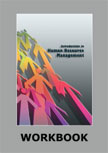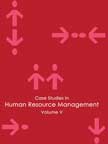Innovations at Wipro
|
|
ICMR HOME | Case Studies Collection
Case Details:
Case Code : HROB040
Case Length : 11 Pages
Period : 1980 - 2003
Pub Date : 2004
Teaching Note : Available
Organization : Wipro Technologies
Industry : Information Technology and Related Services
Countries : India
To download Innovations at Wipro case study
(Case Code: HROB040) click on the button below, and select the case from the list of available cases:

Price:
For delivery in electronic format: Rs. 300;
For delivery through courier (within India): Rs. 300 + Rs. 25 for Shipping & Handling Charges
» Human Resource and Organization Behavior Case Studies
» HRM Short Case Studies
» View Detailed Pricing Info
» How To Order This Case
» Business Case Studies
» Area Specific Case Studies
» Industry Wise Case Studies
» Company Wise Case Studies

Please note:
This case study was compiled from published sources, and is intended to be used as a basis for class discussion. It is not intended to illustrate either effective or ineffective handling of a management situation. Nor is it a primary information source.
Chat with us

Please leave your feedback

|
|




<< Previous
Background Note Contd...
|
In 1975, the company diversified into hydraulic cylinders and fluid power
components and its factory at Amalner was used for production of soaps,
toiletries, and baby care products. In later years, Wipro also entered the
lighting products market through Wipro Bulbs. In 1980, Wipro entered the IT
industry with its subsidiary WT being established in Bangalore (Refer Table I
for Wipro's subsidiaries).
In the 1980s, in the Indian Institute of Science (IISc) lab, the company's team
developed India's first mini computer.
|

|
It was the first Indian company to design and develop multi-processor
systems in India, to design and manufacture mini computers and write a
compiler3 in India. In the later
years, Wipro diversified into IT-related businesses such as IT peripherals.
|
|
By the mid-1990s, WT became the flagship company of the group. It
was also one of the largest software exporters from India after Tata
Consultancy Services4 and
Infosys Technologies5. Over
the years, Wipro entered into various alliances with global IT
majors (Refer Table II for Wipro's alliances). With increasing
globalization, Wipro started focusing more on the IT-related
products and services.
Over the years, Wipro implemented various quality processes in its
organizations to ensure a high quality of products and services. |
The company paid special attention to attaining high quality standards in WT and
Wipro Infotech so as to gain a global market share. In 2001, the company
successfully acquired the Six Sigma6
certification and also became the first IT services company in the world to get
the SEI7 - CMM level 58
and People Capability Maturity Model (PCMM)9
level 5 certifications.
Excerpts
>>
|
|










